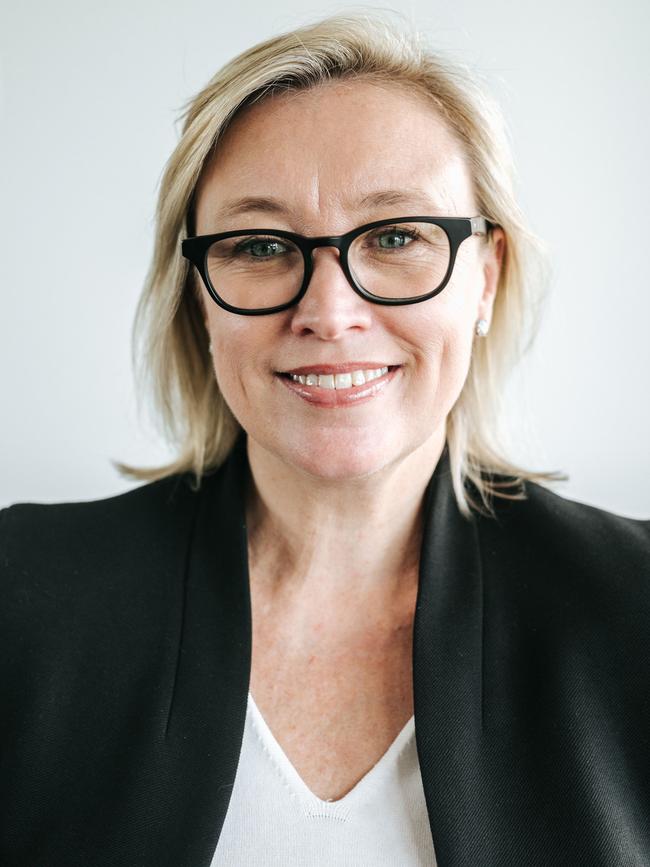Call to reconsider NDIS independent assessments to diagnose autism in children
Governments should reconsider a plan to use independent functional assessments to determine whether children with autism are eligible for the NDIS, a leading advocate says.

State and federal governments should reconsider the dumped plan to use independent functional assessments to determine whether children with autism are eligible for the National Disability Insurance Scheme rather than relying on the child’s own clinicians, a leading autism advocate says.
And practitioners diagnosing children with more severe autism than their characteristics warrant in order to secure access to funding for services under the NDIS must be “called out” for putting the scheme at risk of financially “blowing up”, Autism Awareness Australia chief executive Nicole Rogerson says.

Ms Rogerson said she was deeply concerned that NDIS eligibility for children was currently tied to a diagnosis of autism when it should be determined according to the level of the child’s disability.
“Some hard decisions need to be made on eligibility for the NDIS. It shouldn’t be a diagnosis of autism that automatically qualifies you or excludes you from the scheme,” she said. “We need to consider the amount of disability attached to that diagnosis. Some people with autism have significant and severe disability, but some do not.”
Ms Rogers said the “decision makers on this need to go beyond the child’s own clinician, potentially to a multidisciplinary and independent team”.
“I actually think the proposed system of independent assessments for NDIS eligibility was the right thing to do,” she said. “But it was introduced in such a ham-fisted way by the previous government, with no consultation and using unqualified assessors, so it looked like it was just a cost-cutting exercise.
“Independent functional assessments actually make sense for children on the spectrum and in fact were always in the original plan for the NDIS. It was supposed to be based on need, not the label.”
A functional assessment looks at a person’s capabilities, rather than just providing a diagnosis.
Independent assessments for the NDIS were first proposed by former Coalition NDIS minister Stuart Robert in 2020. Rather than a person’s clinicians providing evidence of eligibility, those looking to enter or continue in the scheme would have been assessed in an interview by a government-contracted allied health professional unknown to them.
Many disability advocates vigorously argued the process would not capture the individual complexity of a person’s needs or circumstances, that assessors would have a conflict of interest in being engaged by the NDIS, and the system may be dehumanising or traumatising for individuals who have to explain their circumstances to a stranger.
Despite denials from the Coalition that the new assessment regime was being introduced to cut the mounting cost of the NDIS, leaked documents from the National Disability Insurance Agency revealed a projected $700m saving over four years as a result of the new assessment system, with NDIS packages expected to be lower on average.
Amid a heavy backlash from the sector, the new NDIS minister Linda Reynolds “paused” the program in April 2021.
Currently a diagnosis of autism for the NDIS can be provided either by a multidisciplinary team including practitioners such as speech pathology, or by an individual psychiatrist or psychologist, depending on the complexity of the individual’s needs.
The number of children entering the scheme via an autism diagnosis has climbed steeply in recent years. One in 10 boys aged 5-7 in Australia are now on the NDIS, the majority with autism. Of the 20,477 NDIS plans approved in the December quarter, 9813, or 48 per cent, were for children younger than seven. The NDIS currently costs $34bn a year and is projected to rise to almost $90bn in a decade. It is co-funded by the commonwealth (currently 66 per cent) and the states.
In the last week The Australian has reported experts warning that clinicians were diagnosing children with more severe autism than their characteristics warrant to give them a greater chance of securing an NDIS place.
A leading autism advocate also warned private diagnostic service providers were charging parents more than $5000 for an autism diagnosis, with the upfront cost being described to parents as a “guarantee of (NDIS) funding for life”.
“I suspect we have kids who might have a diagnosis of something else, but are now diagnosed with ‘autism’ in order to get the clinical support they need,” Ms Rogerson said.
“I think that as a profession, clinicians need to be called out on this. They mean well and see the need for children to get support but if we keep going down this road and diagnosing more and more children as ‘autistic’ the NDIS is in trouble. The way the scheme is set up is wrong, and the way it is managing autism is wrong. We need to tidy this up otherwise the system will blow up, and that is no good for anybody.”
NDIS minister Bill Shorten, who has commissioned an independent review into the scheme, told The Australian he wanted “every dollar in the NDIS to get to the people for whom the scheme was set up to help”.
“Mums and dads being exploited to spend $5000 for a diagnosis so their child can get on the NDIS is not what we wanted when the NDIS was established,” Mr Shorten said.
“At the moment, the NDIS is the only lifeboat in the ocean because states are not providing enough services for disabled people who aren’t intended to be on NDIS. We can do better.”
Ms Rogerson said since the introduction of the NDIS, other services previously provided by state governments vanished.
“It is absolutely right to say that a lot of this stems back to the states,” she said. “After the NDIS came into being every state backed away from their responsibility for people with disabilities. Education Departments deserve extra mention here for their abdication of duty.”






To join the conversation, please log in. Don't have an account? Register
Join the conversation, you are commenting as Logout